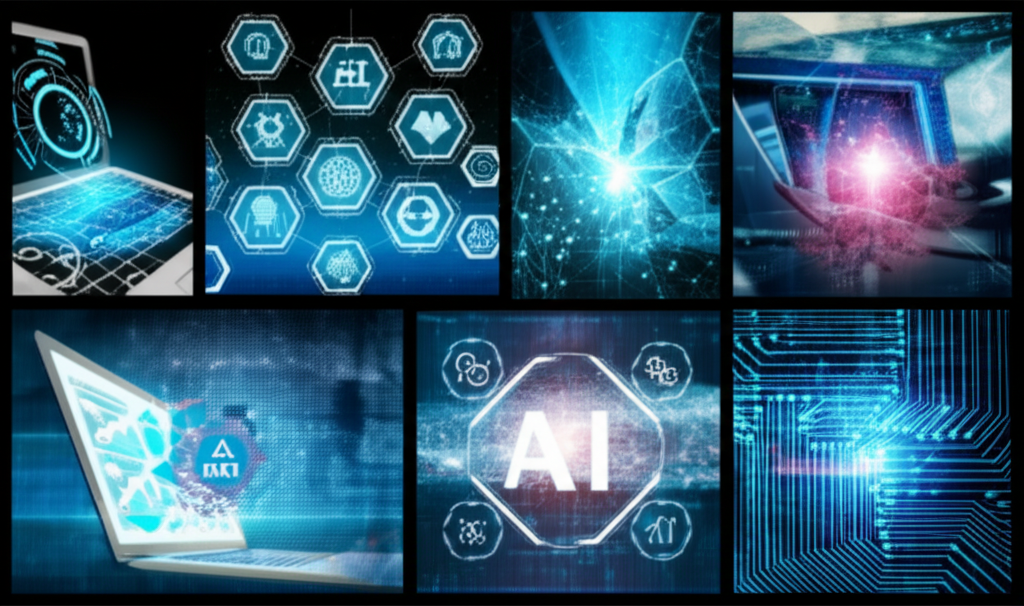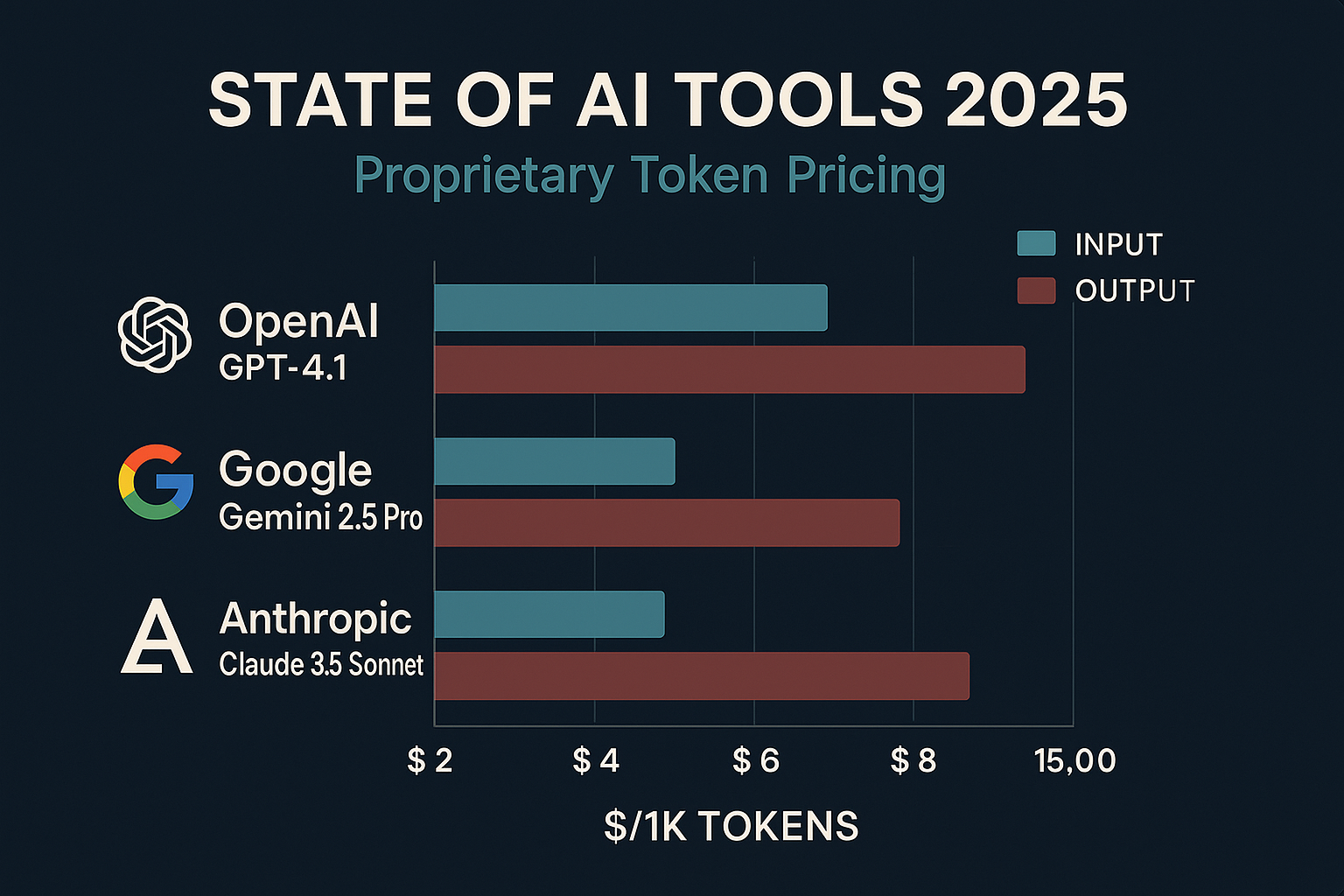The Ultimate Guide to Finding the Best AI Tools: Introduction
Artificial intelligence (AI) is no longer a futuristic concept; it's a present-day reality rapidly transforming industries across the board. From automating mundane tasks to driving complex decision-making, the applications of AI tools are virtually limitless. As AI continues to weave itself into the fabric of our daily lives and professional endeavors, understanding how to navigate the ever-expanding landscape of available tools becomes increasingly crucial.
However, with this proliferation comes a significant challenge: discovering and selecting the right AI tools for your specific needs. The sheer volume of options can be overwhelming, making it difficult to discern which tools are truly effective, reliable, and aligned with your ethical considerations. Many resources, like our very own https://www.best-ai-tools.org/ai-news, regularly post about new tools coming onto the market.
This article serves as your ultimate guide to navigating the world of AI tools. We'll delve into the critical aspects of AI-powered discovery, offering strategies and resources to help you find the tools that best suit your requirements. We will also explore a framework for effective evaluation, enabling you to assess the capabilities, limitations, and potential impact of various AI solutions. Finally, we'll address the ethical considerations surrounding AI adoption, ensuring that you can leverage these powerful technologies responsibly. For a general introduction to the core concepts, see https://www.best-ai-tools.org/learn/ai-fundamentals. From understanding machine learning algorithms to assessing business applications, this comprehensive resource will empower you to make informed decisions and harness the full potential of AI.
AI-Powered Discovery: Finding the Right Tools for Your Needs
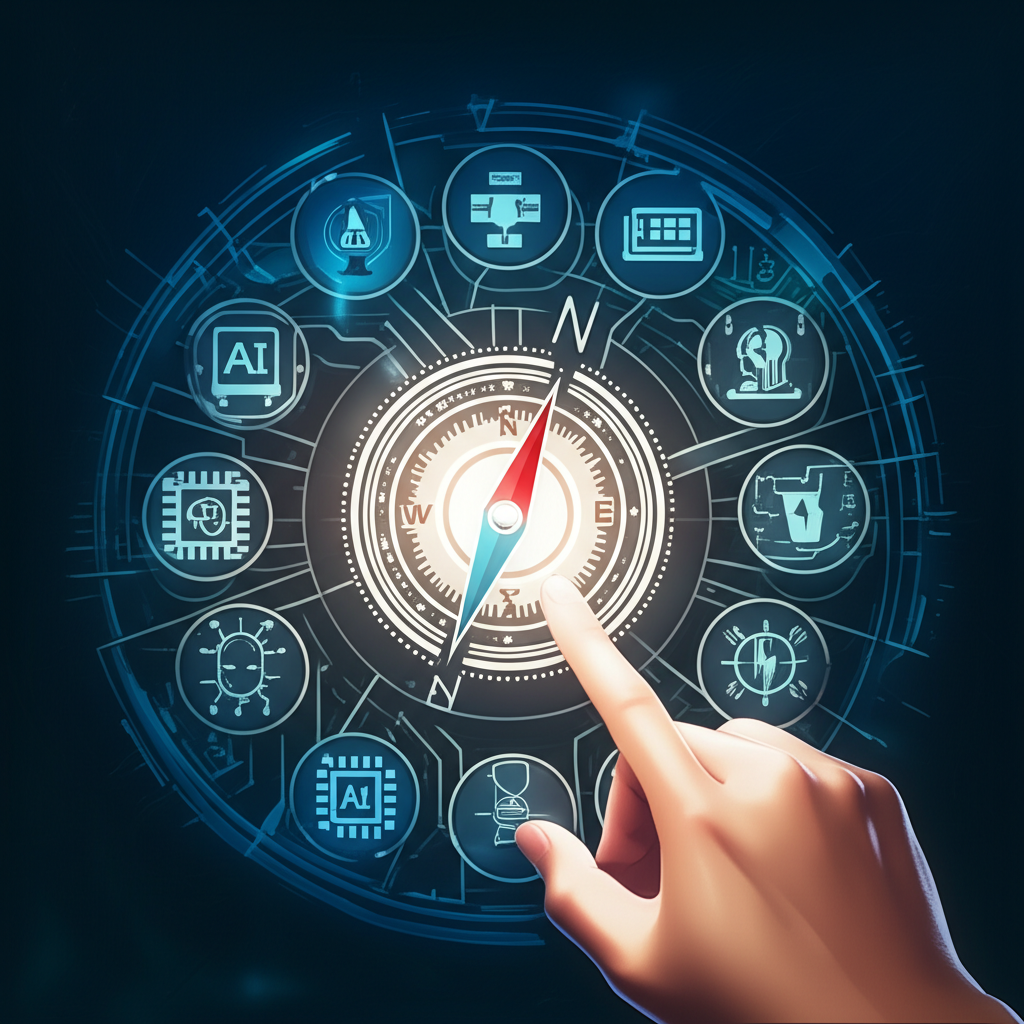
Finding the right AI tools can feel like searching for a needle in a haystack, but with the right strategies, the process can become significantly more efficient. Effective AI tool discovery starts with understanding your specific needs and pain points. Are you looking to streamline your marketing efforts, enhance your creative workflow, or automate complex data analysis? Defining your objectives clearly will help you narrow down the vast landscape of available tools. For example, if content creation is your primary goal, you might explore tools like Jasper or Copy.ai. Remember to consult updated resources and comprehensive listings to stay abreast of the latest AI innovations.
Comprehensive platforms like the https://www.best-ai-tools.org provide curated lists and detailed information on a wide array of AI solutions. Utilizing such resources allows you to efficiently compare different tools and identify those that align with your requirements. Think of it as your one-stop-shop for all things AI, helping you make informed decisions without spending countless hours on individual research. Don't overlook niche AI directories either; they can uncover specialized tools tailored to unique applications. You can also check the https://www.best-ai-tools.org/top-100 to find the most popular tools.
Beyond traditional search methods, exploring AI-powered discovery platforms can further streamline your quest. These platforms leverage AI algorithms to understand your needs and recommend relevant tools based on your preferences and usage patterns. These platforms often incorporate user reviews and ratings, providing valuable insights into the real-world performance of different AI tools. By embracing AI-powered discovery, you can accelerate the identification of optimal tools, saving time and resources while ensuring a more effective AI implementation. A great way to keep up with the industry is to follow https://www.best-ai-tools.org/ai-news.
Evaluating AI Tools: A Framework for Success
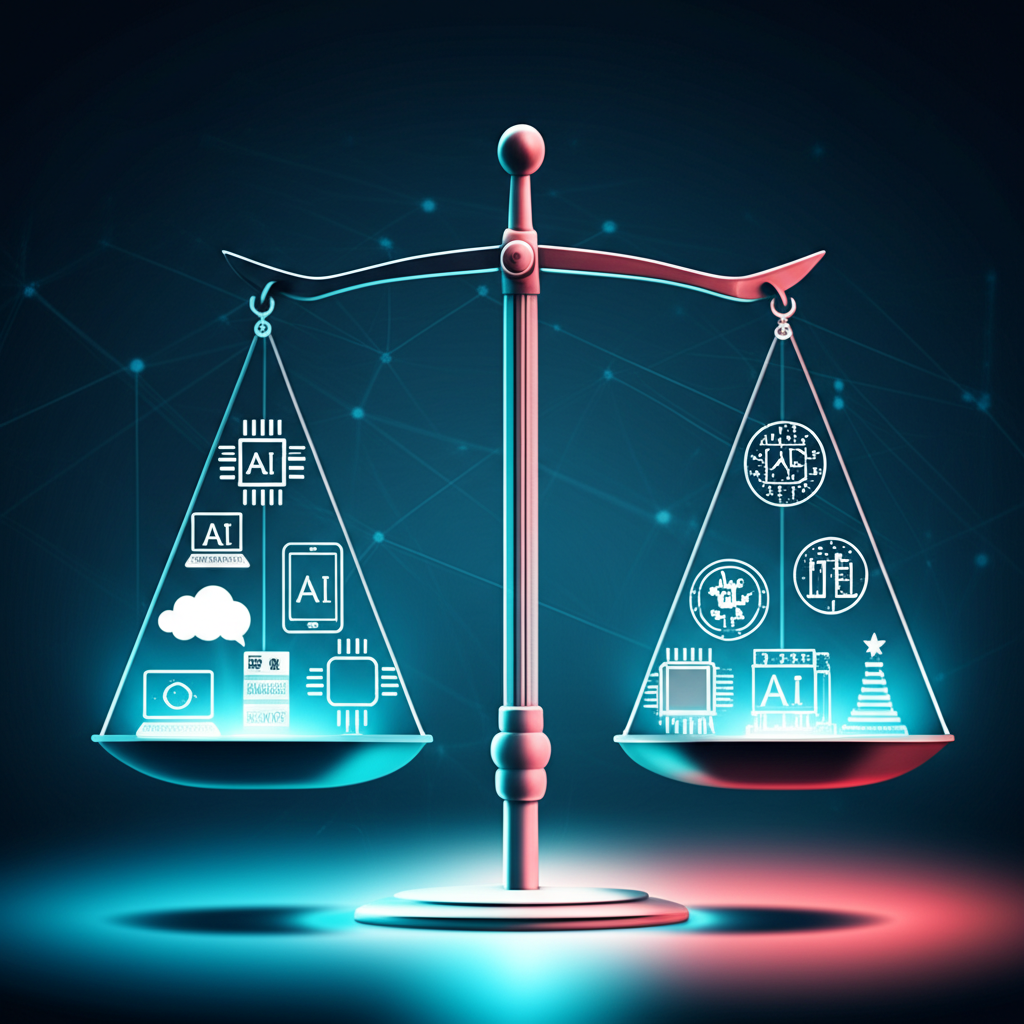
Finding the right AI tool can feel like searching for a needle in a haystack. With the sheer volume of options available, developing a robust framework for evaluation is essential for success. This framework should move beyond simply listing features and delve into a deeper understanding of how each tool aligns with your specific needs.
First and foremost, thoroughly assess your business requirements. What specific problem are you trying to solve? Are you looking to automate customer service with AI chatbots like those listed on our https://www.best-ai-tools.org/tool/chatgpt page or improve marketing campaign performance? Clearly defining your goals will help you filter out irrelevant tools and focus on those that offer genuine value. It's also important to consider the scalability of the AI solution. Will it be able to handle increasing data volumes and user traffic as your business grows?
Next, it's crucial to analyze the AI algorithms that power each tool. Understanding the underlying technology can provide valuable insights into its capabilities and limitations. For example, are you working with images and need to assess https://www.best-ai-tools.org/tool/adobe-photoshop-ai for its content-aware fill capabilities, or do you need to understand how https://www.best-ai-tools.org/tool/grammarly improves writing? Look for information on the algorithms used, such as deep learning, machine learning, or natural language processing (NLP). Evaluating the algorithm's performance is equally important. Look for metrics such as accuracy, precision, recall, and F1-score, where available. Don’t hesitate to explore the https://www.best-ai-tools.org/learn/glossary to understand these terms. Remember, a tool that performs well in a general context may not be suitable for your specific use case, so try to find benchmarks or case studies that are relevant to your industry or application. Examining resources like https://www.best-ai-tools.org/ai-news can also provide valuable insights into the performance of various AI tools in real-world scenarios.
Ethical Considerations in AI: Ensuring Responsible Adoption
As AI permeates more aspects of our lives, ethical considerations become paramount for responsible adoption. It's not enough to simply implement AI; we must ensure it aligns with our values and promotes fairness. Neglecting the ethical dimensions of AI can lead to unintended consequences, eroding trust and potentially causing harm.
One of the most pressing ethical challenges in AI is addressing biases embedded in algorithms. AI models learn from data, and if that data reflects existing societal biases, the AI will perpetuate and even amplify those biases. This can lead to discriminatory outcomes in areas like hiring, loan applications, and even criminal justice. Ensuring fairness requires careful data curation, algorithm design, and ongoing monitoring to detect and mitigate bias. Explore the transformative potential and ethical implications of AI in healthcare with insights from Stanford's Ethical AI Framework, as detailed on our site: [Stanford's Ethical AI Framework: A Guide to Responsible Healthcare Innovation](https://www.best-ai-tools.org/ai-news/stanfords-ethical-ai-framework-a-guide-to-responsible-healthcare-innovation). Further exploration of AI fundamentals can be found at our dedicated [learn/ai-fundamentals](https://www.best-ai-tools.org/learn/ai-fundamentals) resource.
Furthermore, compliance with regulations and responsible AI implementation are crucial. As governments and organizations grapple with the implications of AI, new laws and guidelines are emerging. Staying informed about these developments and adhering to them is essential for avoiding legal and reputational risks. This includes implementing robust data privacy measures, ensuring transparency in AI decision-making processes, and establishing accountability for AI outcomes. By embracing a proactive and ethical approach, we can harness the power of AI for good while mitigating its potential harms. You can also stay up-to-date with the latest AI news and regulatory trends by visiting our [AI News](https://www.best-ai-tools.org/ai-news) section.
Business Applications of AI Tools: Real-World Examples
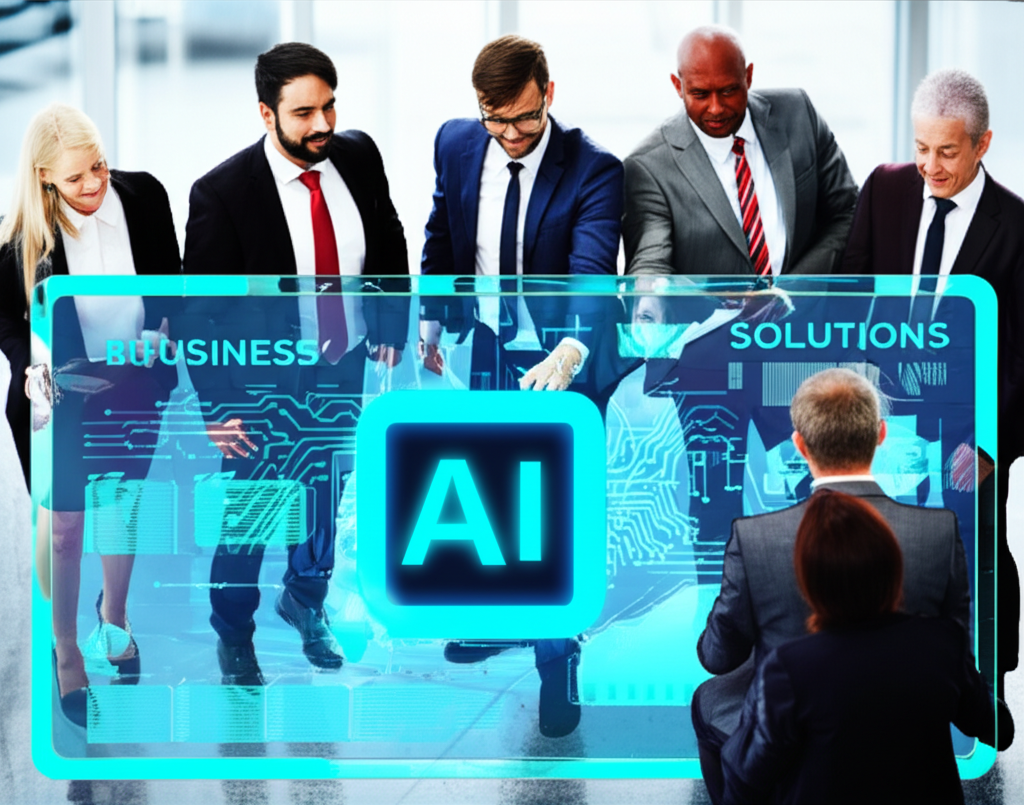
AI tools are rapidly reshaping the business landscape across various industries, driving efficiency, innovation, and competitive advantage. Let's explore some real-world examples of how these tools are being applied. In marketing, for instance, AI-powered platforms like https://www.best-ai-tools.org/tool/hubspot are used for automation, personalization, and predictive analytics. These tools enable businesses to understand customer behavior better, tailor marketing campaigns, and optimize ROI.
In the realm of content creation, AI is also making significant strides. Tools like https://www.best-ai-tools.org/tool/jasper and https://www.best-ai-tools.org/tool/copyai assist in generating high-quality content, streamlining the content creation process, and enhancing overall marketing effectiveness. These tools can even help craft compelling email subject lines with https://www.best-ai-tools.org/tool/hubspot-email-writer, ensuring higher open rates and engagement.
Customer service is another area where AI is making a substantial impact. AI-driven chatbots and virtual assistants, such as those available through https://www.best-ai-tools.org/tool/intercom, provide instant support, resolve queries efficiently, and improve customer satisfaction. These tools can handle a high volume of interactions, freeing up human agents to focus on more complex issues. AI's transformative impact is also evident in design and creativity, where tools like https://www.best-ai-tools.org/tool/adobe-photoshop-ai and https://www.best-ai-tools.org/tool/canva-magic-studio are revolutionizing how visual content is created and edited.
Consider the case of a large e-commerce company that implemented an AI-driven recommendation engine. By analyzing customer browsing history and purchase patterns, the engine provided personalized product recommendations, resulting in a 20% increase in sales. Similarly, a healthcare provider used AI algorithms to analyze medical images, improving diagnostic accuracy and reducing the time required for diagnosis. A financial institution leveraged AI for fraud detection, identifying suspicious transactions in real-time and preventing significant financial losses. These case studies illustrate the tangible benefits of AI implementations across diverse sectors.
AI tools are transforming a wide range of business processes, from automating routine tasks to enabling data-driven decision-making. In supply chain management, AI is used to optimize logistics, predict demand, and reduce costs. In human resources, AI is used to streamline recruitment, personalize training, and improve employee engagement. As AI technology continues to evolve, its business applications will only continue to expand, creating new opportunities for innovation and growth. Stay updated with the latest trends and insights by visiting our https://www.best-ai-tools.org/ai-news section.
Personalized Recommendations and Free AI Options
Finding the right AI tool can feel like searching for a needle in a haystack. That's why personalized recommendations are crucial. We aim to provide tailored suggestions based on your specific needs and technical expertise, filtering through the noise to highlight tools that truly align with your goals. Whether you're a seasoned data scientist or just starting to explore the possibilities of AI, our platform will adapt to your level and offer relevant options. For example, someone seeking to improve marketing campaigns might benefit from exploring AI-driven email writing tools such as https://www.best-ai-tools.org/tool/hubspot-email-writer or AI SEO tools like https://www.best-ai-tools.org/tool/aiseo. Others may be interested in https://www.best-ai-tools.org/tool/chatgpt.
We also understand the importance of accessibility, especially for those just beginning their AI journey. That's why we curate lists of free AI tools and resources, allowing you to experiment and learn without financial commitment. These options span various categories, including image editing (consider tools like https://www.best-ai-tools.org/tool/befunky), writing assistance (https://www.best-ai-tools.org/tool/grammarly), and even basic data analysis. These free tools provide an excellent foundation for understanding AI capabilities and identifying areas where more advanced, paid solutions may be beneficial.
Ultimately, the power of AI lies in its ability to address specific business challenges. By understanding your unique operational bottlenecks and desired outcomes, we can help you tailor AI solutions to create maximum impact. Whether it's automating customer service with AI chatbots (like https://www.best-ai-tools.org/tool/intercom), streamlining content creation, or optimizing data analysis for better decision-making, the key is to identify the right tool for the job. Our platform is designed to facilitate this process, connecting you with the resources and information you need to harness the true potential of AI for your business.
Emerging Trends and Niche AI Categories

The AI landscape is constantly evolving, and staying informed about emerging trends in AI tool discovery is crucial for leveraging the latest innovations. This involves not just finding new tools, but also understanding how they fit into broader AI advancements and cater to specific needs. One prominent trend is the rise of AI directories, expert-curated resources designed to help users navigate the ever-expanding universe of AI applications. These directories, like the ones discussed in this article, offer a structured approach to discovering AI tools, allowing users to filter by category, function, and even ethical considerations. For more on this, see our guide to AI directories at https://www.best-ai-tools.org/ai-news/ai-directories-your-expert-guide-to-finding-the-best-ai-tools-and-startups.
Beyond general-purpose AI, we're seeing a surge in niche AI categories and specialized solutions. These tools address highly specific problems within industries like healthcare (as explored in https://www.best-ai-tools.org/ai-news/ai-in-healthcare-revolutionizing-diagnosis-treatment-and-patient-care), finance, and creative arts. For example, while a tool like ChatGPT is versatile, other AI tools are emerging to cater for particular roles, such as creating AI-generated videos or generating different types of AI art. The increasing specialization allows businesses and individuals to fine-tune their AI usage for optimal results.
To stay ahead of the curve in this rapidly evolving AI landscape, continuous learning and adaptation are essential. Regularly exploring resources like https://www.best-ai-tools.org/ai-news, which provides daily updates on AI news, is a great way to keep up with the latest developments. Additionally, engaging with AI communities, attending webinars, and experimenting with new tools are all valuable strategies. By embracing a proactive approach to AI discovery, you can ensure you're always equipped with the best tools to achieve your goals. Don't forget to explore our https://www.best-ai-tools.org/top-100 list for a curated overview of leading AI tools available right now.
Conclusion: Embracing the Future with AI Tools

In conclusion, navigating the world of AI tools requires a strategic approach. Remember the key steps: identify your specific needs, leverage AI-powered discovery platforms like our own https://www.best-ai-tools.org to uncover relevant options, rigorously evaluate tools based on your criteria, and implement them thoughtfully within your workflows. As we've seen, the landscape of artificial intelligence is constantly evolving, so continuous learning is paramount. Stay informed about emerging trends by regularly visiting our https://www.best-ai-tools.org/ai-news section, exploring resources in our https://www.best-ai-tools.org/learn portal, and deepening your understanding of https://www.best-ai-tools.org/learn/ai-fundamentals. Explore our https://www.best-ai-tools.org/top-100 to find top rated AI tools. Embrace the power of prompt engineering with the resources found at https://www.best-ai-tools.org/learn/prompt-engineering, and continue to experiment with tools such as https://www.best-ai-tools.org/tool/chatgpt, https://www.best-ai-tools.org/tool/google-gemini and https://www.best-ai-tools.org/tool/claude. The future is here, and it's powered by AI. We encourage you to dive in, explore the possibilities, and discover how AI can transform your work and life. Don't forget to https://www.best-ai-tools.org/submit-tool if you have a tool you would like us to review.
SEO Keywords
AI tools, best AI tools, AI tool discovery, AI tool evaluation, ethical AI, AI algorithms, business applications of AI, AI tool framework, personalized AI recommendations, free AI tools, emerging AI trends, niche AI categories, AI-powered solutions, AI software, how to choose AI tools
Related Hashtags
#AITools #ArtificialIntelligence #AIAdoption #EthicalAI #MachineLearning
For more AI insights and tool reviews, visit our website www.best-ai-tools.org, and follow us on our social media channels!
X (Twitter): https://x.com/bitautor36935
Instagram: https://www.instagram.com/bestaitoolsorg/
Facebook: https://www.facebook.com/profile.php?id=61577063078524
LinkedIn: https://www.linkedin.com/company/best-ai-tools-org
YouTube: https://www.youtube.com/@BitAutor
Medium: https://medium.com/@bitautor.de
Telegram: https://t.me/+CxjZuXLf9OEzNjMy
